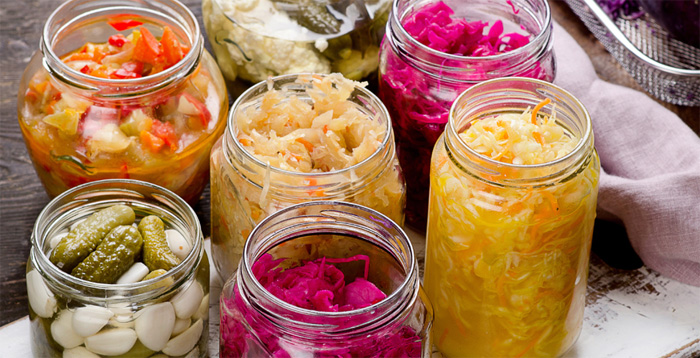Rethinking Lifestyle
The Squash Revolution

I think it started with the squash – I had lots, but no cabbage. I had been learning about making sauerkraut – I wanted to make sauerkraut – but difficult to do without cabbage, wouldn’t you say? And what to do with all that squash?
On the other hand, the information I had on the process of fermentation that creates sauerkraut also said that the process works with vegetables in general. And fruit, by the way. So, why not squash?
Using a recipe for Latin American sauerkraut actually, I shredded a massive 26 lb. squash along with some carrot and onion, mixed it all with some salt and seasonings, and pounded it to release the juices. Then I packed it away in blissfully un-sterilized jars. And waited for it to turn into ‘sauer … what? … squash’? I coined the term ‘sauersquaw’. It seemed appropriate.
It was delicious. Good with everything from burgers to beans. Success.
After that I played with it. The fermentation I mean, for preservation. Used zucchini. Perfect since it grows so prolifically and effortlessly right here, at our own latitude. I used carrots, radishes, garlic, apples and pears and cranberries, all northern grown. Soon I began making other substitutions in my regular cooking. If I can substitute squash for cabbage in pickling why can’t I substitute vegetables that I do have on hand for those I don’t when I am cooking? Why does my January stir-fry have to have peppers in it? Or my salad … does salad have to be lettuce, tomatoes and peppers – in Manitoba – in the middle of winter? I was propelled along the road to using more and more foods that are grown in my own, or my neighbours’, or my local farmers’ market gardens. And fewer and fewer foods that are grown in faraway places like Mexico, California, and China. Manitoba grown vegetables began to replace the more exotic vegetables in both my salads and my cooking. The dish does not taste exactly the same but it certainly tastes good.
And satisfying.
Satisfying because I am using all I can grow and less of what I have to buy. Satisfying because I am contributing to the income of the farm families in my own neighbourhood, my own province, my own country. Satisfying in the knowledge that I did not contribute to the use of fuel to bring my food thousands of miles across the continent. Or the ocean. And for me there is a satisfaction, a sense of harmony, in the very idea that my core nourishment comes from the geographical area where I live, the harsher, northern part of North America rather than the tropical parts of the world. I am not a tropical bird – I am a snow bird! It makes a kind of sense to me that my body would be happy living on foods native to a snow bird.
I feel like this is a revolution in the making. Canada, Manitoba even, could be self sufficient in food if we rely on what can grow here and what will keep through the winter under proper storage conditions. Our own farm economy would get a huge boost. The environment would suffer less. The highways would not take such a beating! We would be less vulnerable to fluctuations in the supply, or transport, or cost, of foods coming from thousands of miles away. Think storms, drought, fires, strikes, fuel shortage, fuel costs, the value of the dollar, politics.
Recipes are not law! After all, a recipe is someone else’s experiment. We have some of this on hand, and some of that, and voila … something great! We can use recipes as a pattern, a formula, a suggestion. Substitute cabbage for lettuce, squash for eggplant, pear for mango, millet or barley or buckwheat for rice. Even fats or oils. Does it make sense to use olive or coconut or even avocado oil, good as they are, for our everyday, go-to fats, when we live in the northern part of North America and have to import every drop? Certainly we can use butter or lard for cooking and baking, especially as common sense and science are now restoring them to their desirable, nourishing, even essential status. For salad dressing there are still flax and hemp oils, both grown here. And, do salad dressings have to be the classic oil and vinegar formula? I think the purpose of a dressing is to moisten the raw vegetables that salads are typically made of. To give a burst of flavor, some pungency, a sweetness, an accent. I often use yogurt mixed with some sauer-squaw or other pickle. I am sure that you, we, can come up with other possibilities.
Our ancestors grew and prospered on the foods available to them. So can we. Ingenuity and practicality could redefine our cuisine. Make it more accessible, more sustainable, more affordable to all. Make us more independent.
And give us, now, a big adventure! What dishes will you discover?




